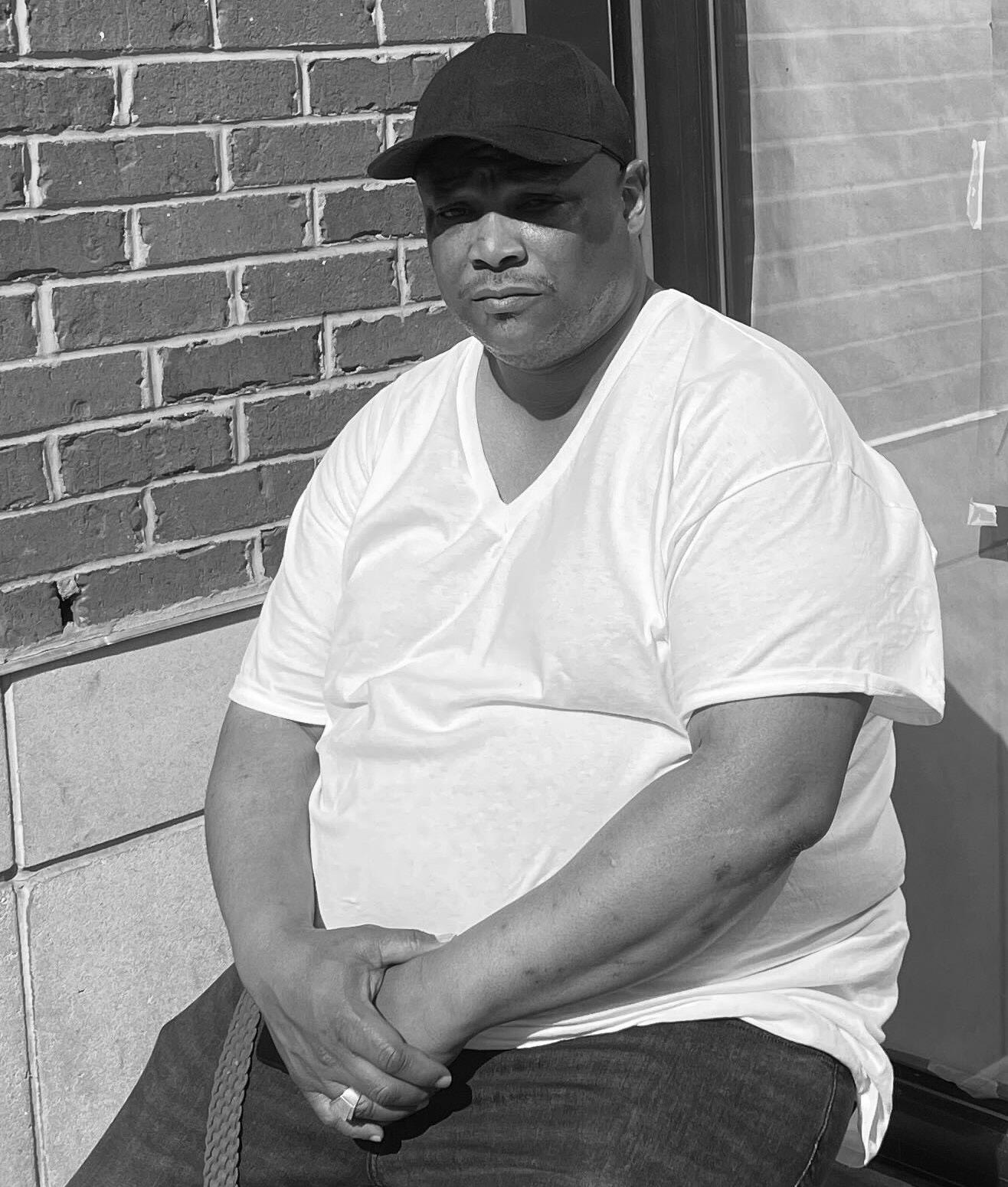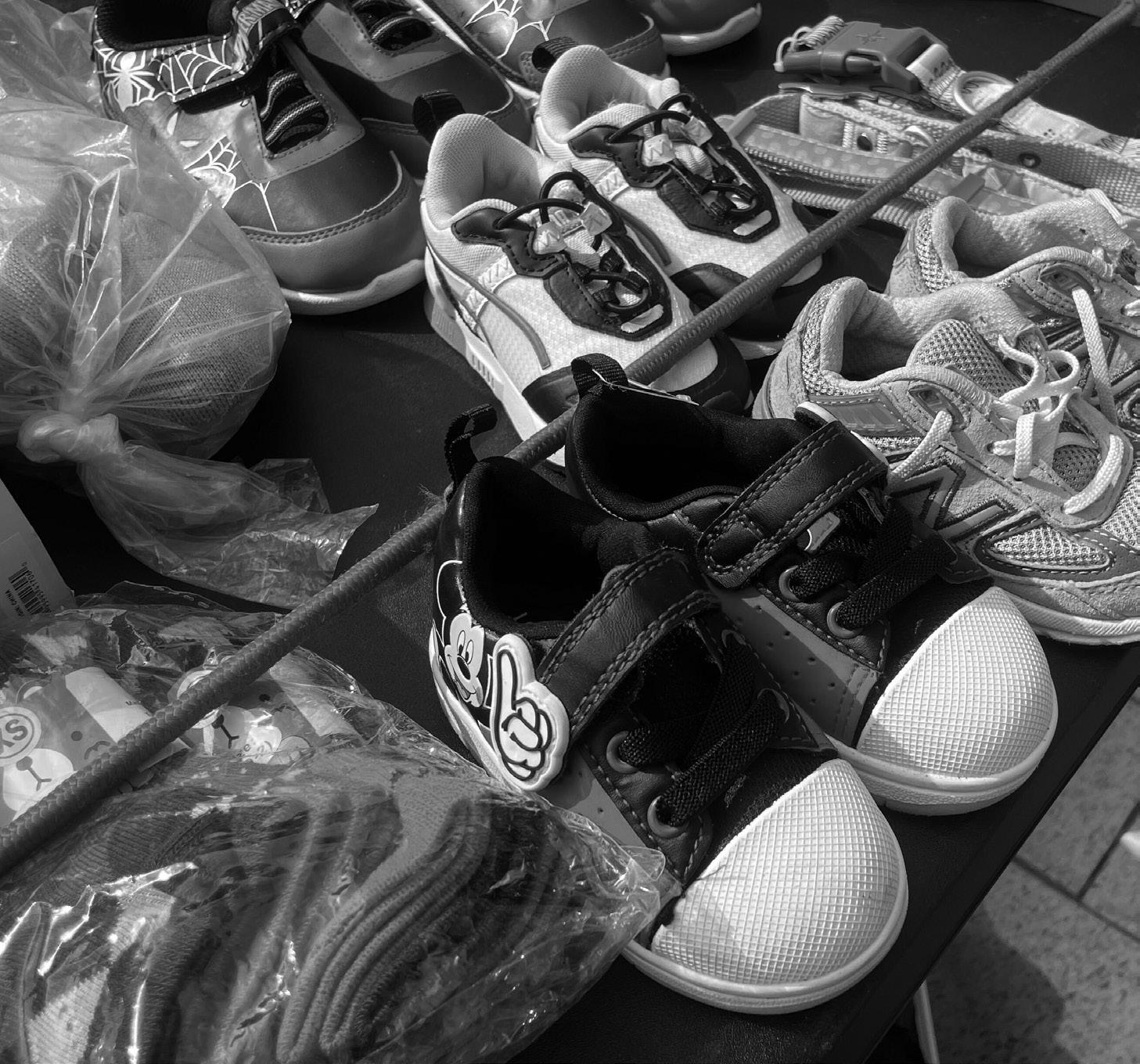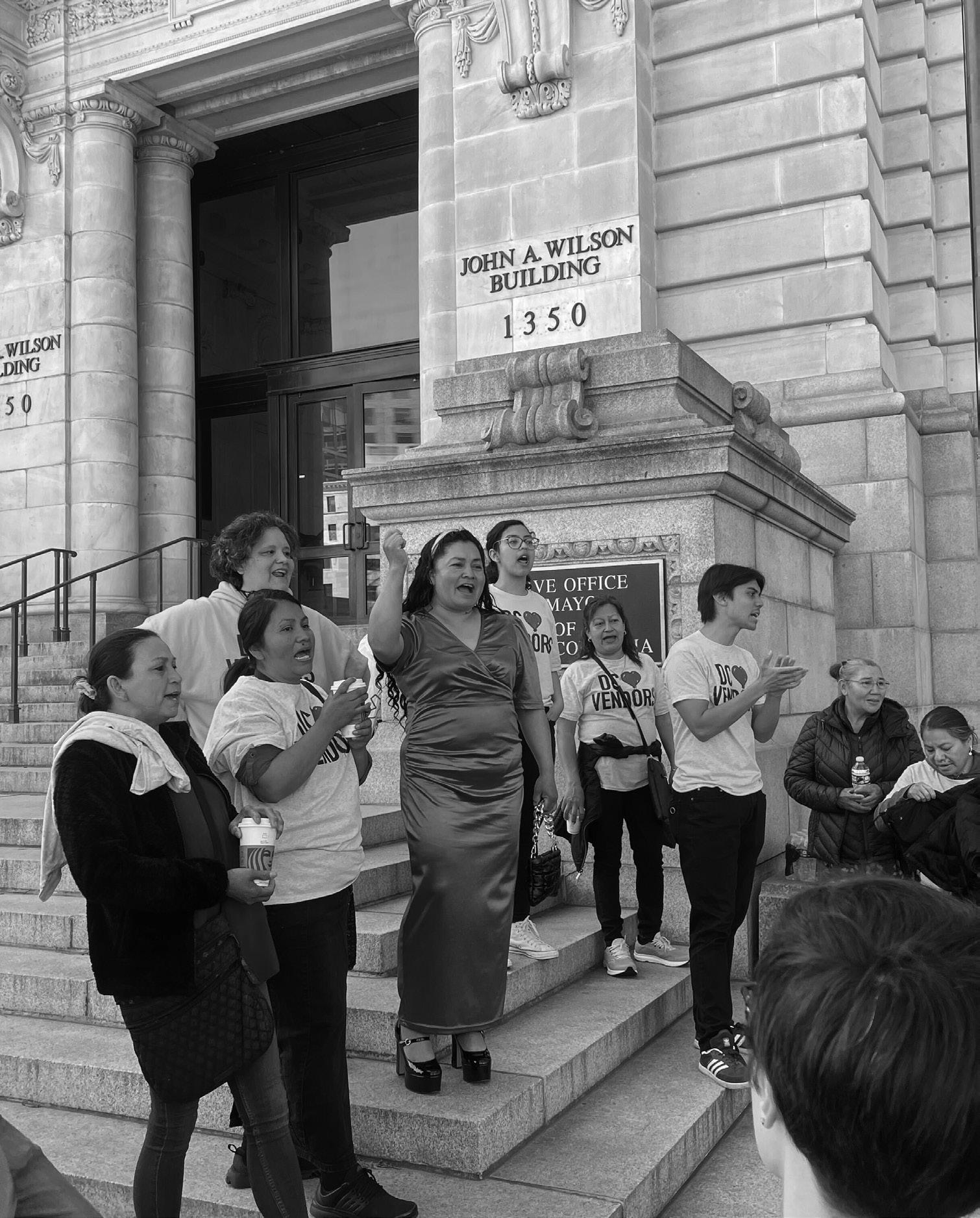
4 minute read
Street vending bill passes second council vote
from 04.05.2023
KAELA ROEDER Deputy Editor
Chuck Bradley, a street vendor who sells in Columbia Heights, has been harassed, fined and even jailed for selling shoes, hats and jackets on the sidewalk. He’s lost count of the number of times he’s been approached by police.
Advertisement
Street vending is how Bradley makes a living, which he’s done before and after being incarcerated. Bradley started vending around 2005 and was inspired by his uncle, who was a street vendor in the 80s and 90s in the District. Bradley had to “start all over” after being released, he said, and street vending was a way to do that. Bradley sells right next to his wife on 14th Street, who sells various handmade art pieces and beauty products.
The line of work can be difficult, and Bradley doesn’t have a license to vend — currently, it’s illegal to street vend without a license and a person can face criminal penalties for doing so. Between January 2018 and September 2022, 463 people in D.C. were arrested for “vending offenses,” according to a report by the local nonprofit Beloved Community Incubator.
Bradley is ready for change, and it may come soon — a new bill promises to decriminalize street vending without a license, establish zones for vendors to operate legally and make it easier to obtain a license. The bill, introduced by Ward 1 Councilmember Brianne Nadeau and Chairman Phil Mendelson, is a combination of two past proposals previously introduced by Nadeau in 2020 and 2021. D.C.’s street vending community has fought for reform for years, and in a major step forward, the proposed legislation passed its second vote in the D.C. Council on April 4.
If the bill becomes law, D.C. would join New York City and Los Angeles in reforming vending regulations. Now that the bill has passed the second council vote, it will be sent to the mayor’s desk. Then, it will undergo congressional review. Nadeau said in an interview that she plans to work with colleagues to find funding for the legislation in the fiscal year 2024 budget.
The D.C. Council chambers erupted in applause when the bill passed unanimously.
“I’m happy,” former street vendor Medhin Ayele said on the steps of the John A. Wilson building after the vote. Her license expired in September 2020 at the height of the pandemic, and she hasn’t been able to get another license because of the fines she owes. If the bill is passed into law, she hopes to get a license again and go back to selling hot dogs, chips and sodas.
“So many people have worked on this for such a long time,” Nadeau said in an interview with Street Sense. “It’s just thrilling to get across the finish line.”
Street vending has long been a low-barrier job for many in the District and around the world. According to a study by the Institute for Justice, 51% of vendors are immigrants and 62% are people of color in the United States.
There are many reasons vendors don’t obtain licenses — the cost, the lengthy process and the required criminal background check are just some of the reasons Bradley has not gotten a license. The legislation will eliminate the criminal background check, which hindered Bradley from getting a license due to his record.
Under the current law, a license for merchandise vendors can cost over $2,000 per year. But under the new law, the total cost of licensing for merchandise vendors would be about $570. For vendors who sell food, the cost would be about $1,800 — under the current law, it can cost about $3,500 per year for food vendors.
Bradley is not alone in selling without a license because of cost barriers. G is a street vendor who sells bracelets, ashtrays, coasters and paintings, and her husband DJ sells Caribbean cuisine and other foods in the same tent as her. Both vendors spoke on the condition of anonymity, due to fear of retribution for selling without a license.
The husband and wife are hopeful and excited about the prospect of the bill passing into law. It would lessen their anxiety about selling without a license, they said.
Other jobs don’t work for G and DJ because they have three kids to care for. In the past, G worked at a restaurant but left that job because the hours did not coincide with when her kids were in school. The flexible schedule that comes with vending allows for G and DJ to be “on call” for their children. The kids often come with them after school to sell, as well.
“They love being out here with us,” G said.
Even though neither of the two has a license to vend, they have not had any issues with law enforcement. But they’ve heard many stories of vendors on their same block having problems, G said. She’s still nervous — she doesn’t have a criminal background and doesn’t want a record.
“I think God is on our side,” G said. “Sometimes, we are scared.”
Artemis Whyte, a former street vendor who owns the online spice and sauce shop Trini Love and a catering business, also did not get a license to sell when she was a street vendor because of the high cost (Now, her business is registered as an LLC). She stopped street vending at the onset of the pandemic and pivoted to her shop because of how much everything slowed down, she said.
She never had any run-ins with law enforcement, but she witnessed a lot of fellow vendors being harassed by police. This also contributed to her leaving street vending — it made her “uncomfortable” to sell, she said.

“I don’t want to be harassed by the police. I don’t want to be arrested and get my stuff taken away. I don’t want that drama,” she said. “It turns me off of even vending. I’m afraid to even go out and try because of the restrictions of the law.”










